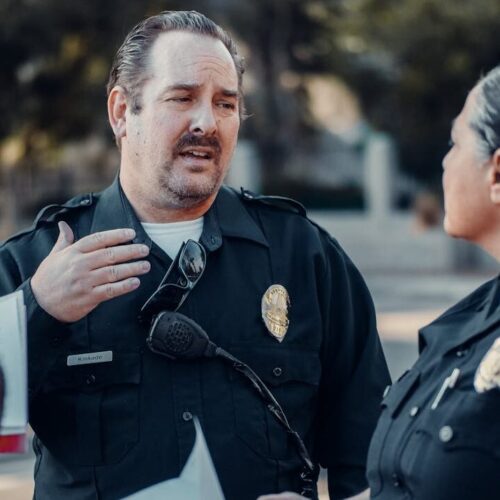Implementation and Expansion Guide for JMHCP Law Enforcement Grantees
This guide from the CSG Justice Center is intended to support recipients of Justice and Mental Health Collaboration Program (JMHCP) grants administered by the U.S. Department of Justice’s Bureau of Justice Assistance. It is not meant to serve as a step-by-step blueprint, but rather to foster discussion on best practices, identify considerations for collaborative efforts, and help programs work through key decisions and implementation challenges. The guide is divided into six sections, each with assessment questions, exercises, and discussion prompts. Although the guide was developed as a tool for JMHCP grantees, the exercises and supporting resources may be helpful for other collaborative criminal justice and mental health programs. This guide is tailored to Category 3 Law Enforcement grantees that are primarily focused on implementing specialized police responses or police-mental health collaboration programs, including crisis intervention teams and co-responder models.
The sharp rise in school shootings over the past 25 years has led school officials across the U.S.…
Read MoreA three-digit crisis line, 988, launched two years ago to supplement—not necessarily replace—911. Calling 988 simplifies access to…
Read More Taking the HEAT Out of Campus Crises: A Proactive Approach to College Safety
Taking the HEAT Out of Campus Crises: A Proactive Approach to College Safety
The sharp rise in school shootings over the past 25 years has led school officials across the U.S. to take a closer look at ways to keep students safe. For Chaffey College in Rancho Cucamonga, California, a tragic incident at a nearby university hit close to home and spurred campus leaders to revisit their own school’s threat assessments and crisis responses.
Read More From 911 to 988: Salt Lake City’s Innovative Dispatch Diversion Program Gives More Crisis Options
From 911 to 988: Salt Lake City’s Innovative Dispatch Diversion Program Gives More Crisis Options
A three-digit crisis line, 988, launched two years ago to supplement—not necessarily replace—911. Calling 988 simplifies access to services when people are seeking help for themselves or loved ones with suicidal thoughts, behavioral health concerns, or substance use-related crises.
Read More Matching Care to Need: 5 Facts on How to Improve Behavioral Health Crisis Response
Matching Care to Need: 5 Facts on How to Improve Behavioral Health Crisis Response
It would hardly be controversial to expect an ambulance to arrive if someone called 911 for a physical health emergency. And yet, for years, the default responders for a behavioral health emergency have been law enforcement officers, not behavioral health professionals.
Read More












